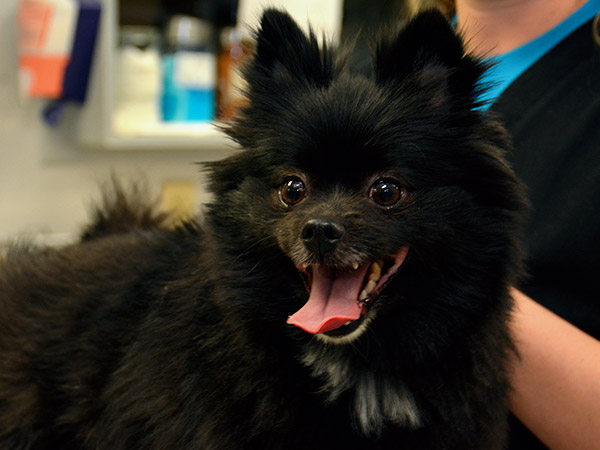Routine Spay and Neuter Surgery
The Importance of Spaying and Neutering
Spaying and neutering can be done as early as four to six months of age. This is a very important procedures as it not only eliminates the risk of unwanted pregnancy, but also prevents common behavior and health conditions associated with intact animals. Our routine surgeries are packaged to include a pre-anesthetic exam, pre-surgical lab including CBC and chemistries, IV catheter, cardiac/respiratory monitoring including blood pressure, safe anesthesia, pain medications before and after surgery, and optional pain medications to go home.
Our goal is for you and your pet to have a positive experience at Jefferson Animal Hospital. You and your pet should be stress free , pain free and enjoy the experience.
Jefferson Animal Hospital believes there is nothing routine about any anesthetic procedure.
As an accredited AAHA hospital, we follow strict guidelines to ensure safe anesthesia and surgery for all our patients. Anesthesia advanced monitors including EKG, Pulse Oximetry, respiratory monitors and blood pressure monitors are used during all anesthetic procedures to ensure the safest possible outcome.
Spay
Spaying is a surgical procedure recommended for all female dogs or cats over four months of age. This is considered a major surgery because it is an abdominal procedure. During this operation, both the ovaries and the uterus are removed. Removal of the ovaries means that the hormonal influence which causes the behavior known as “being in heat” is gone. Your pet will no longer come into heat, or be able to produce puppies or kittens.
In most situations a pet that is spayed will go home without skin sutures. We typically use sutures that are buried below the skin. This has proven to be very effective, because it reduces the risk of your pet having a skin reaction to the suture material. Using these sutures also means that you don’t have to bring your pet back for suture removal 10 – 14 days after the surgical procedure.
Neuter
Neutering is a surgical procedure recommended for all male dogs or cats over four months of age. This surgical procedure will remove the testicles rendering the pet sterile and unable to produce sperm. Be aware that although your pet will not be able to father puppies or kittens, he may still become aroused in the presence of a female in heat and may still be able to perform intercourse.
There will be a small incision made at the base of the penis or over the scrotum to perform the procedure. Once the procedure is performed, we typically use sutures that are buried below the skin to close the incision. This has proven to be very effective because it reduces the risk of your pet having a skin reaction to the suture material. Using these sutures also means that you don’t have to bring your pet back for suture removal 10 – 14 days after the surgical procedure.
The Pre-Surgical Examination
Prior to any spay or neuter surgery, it is very important that you meet with one of our veterinarians to discuss the individual health status of your pet. During this examination our veterinarian will evaluate your pet’s vaccination history, risk factors and general health condition. There are also some optional services that you may want to take advantage of that are offered for pets that are having surgical procedures. If you are planning to have your pet evaluated for surgery here at Jefferson Animal Hospitals, it will help you to be familiar with what is offered leading you to ask any questions that you might have with the doctor during the pre-surgical examination.

